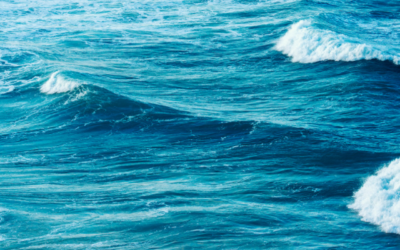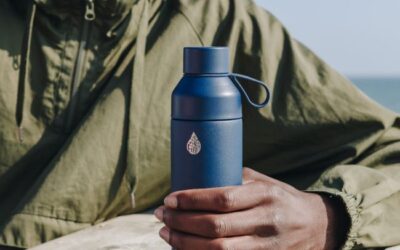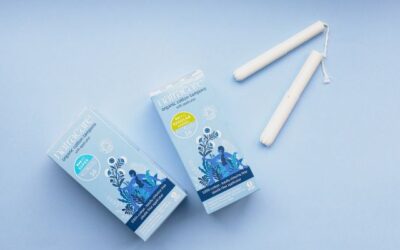Plastic-free Bathroom
Make your bathroom a plastic-free paradise
Our bathrooms can be a complete disaster for plastic pollution – from plastic items wrongly flushed down the toilet, to microbeads in our sun cream. From the millions of shampoo and conditioner bottles to the unrecyclable toothpaste tubes and miles of tooth floss. Luckily, one of the easiest rooms to transform into a plastic-free paradise is the bathroom.
Whilst most of us are aware of the plastic in our soap and shampoo bottles, our razors and our cleaning products, it’s a nasty shock to many to hear that there is also plastic lurking in wet wipes, period products, nappies, tooth-floss and cotton buds. Any time we flush anything other than pee, poo and toilet paper, something (or someone!) has to remove it for us to have clean drinking water. Or it ends up as a very toxic dinner for some poor sea creature. We’re here to help you with options for a perfect plastic-free bathroom.
Turn your bathroom into a plastic-free paradise
What’s going down your loo?
5.9% of all the litter on our beaches in the UK comes from items that have been flushed down the loo when they should have gone in the bin.
But fear not, we’re here to raise awareness of the obvious and not-so-obvious plastics in our bathroom, helping you to protect our one and only planet. Let’s dive right in.
What to flush

Most wet wipes are primarily made of plastic, and whatever the packet may say, they are NOT flushable! Fatbergs, which clog our sewers and cause plastic pollution, are actually 93% non-flushable wet wipes. On top of this, the number of wet wipes found on UK beaches has increased by more than 700% in the last decade. Yuck. Whether you’re using wipes to take your make-up off, change your babies nappy or for a ‘posh poo’, we beg you keep them away from the toilet bowl and put them straight in the bin. Even better, switch to reusable baby wipes or make-up pads, you can throw these in the wash and reuse them for years.
Over the past 25 years, plastic cotton bud sticks have been in the top 10 items found littering UK beaches. How are they ending up there? Well, here in the UK we’ve been flushing them down the loo… in their millions! Being so small, these pesky little cotton bud stems can squeeze through sewage filters. And even when they don’t, they end up contributing to ‘fatbergs’ block sewers and cause even more plastic pollution. The best solution to this cotton bud problem is to avoid them altogether. But if you really do need to use them, then opt for paper-stemmed cotton buds and be sure to always put them in the bin. You can now buy paper-stemmed cotton buds from Boots, Tesco, Asda, Morrison’s, Superdrug, Sainsbury’s, LIDL, ALDI and Wilko’s.
Toiletries
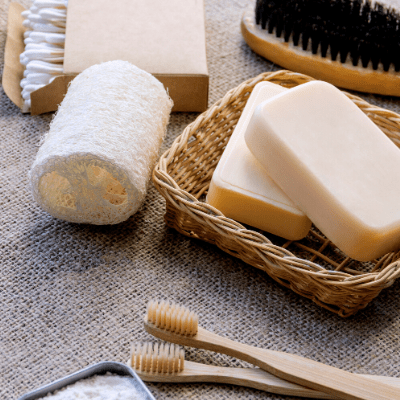
Clean body, clean seas
Soap, shampoo and conditioner bottles are 3 of the easiest items to swap for plastic-free alternatives. A good old-fashioned soap bar on a soap rest does the job. Many brands are also now offering plastic-free shampoo and conditioner bars too. And because these bars don’t contain as much water as their liquid alternatives, they tend to last longer too. Have a browse in our shop for your plastic-free bathroom essentials. Alternatively, it’s super easy to fill up your existing containers at zero-waste shops, find your nearest Refill Station on the free Refill app. There are so many amazing brands that are now available for refills, so you might even find your favourite product ready to refill today. Win, win!
Happy Shaving!

In 2018, around 5.5 billion people in the UK were using disposable razors. Most people will use more than 1 disposable razor per year. Add that to the packaging and bottles of shaving foam and gel, we start to reveal a mighty amount of plastic heading to landfill. A stylish reusable razor will last you years, avoid countless trips to the supermarket for a new one and may save you money in the long run. Bambaw’s razor is ideal for beginners and the individual blades can be collected in a container and then recycled.
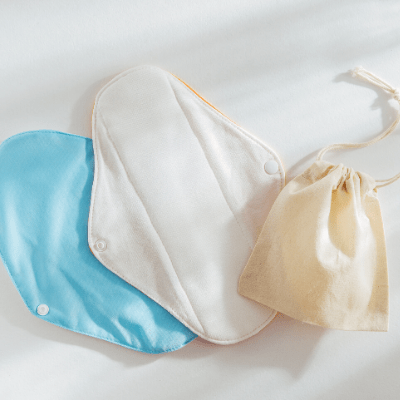
Big-brand disposable period products are a potential health hazard, cost us around £4,800 over our menstruating lifetime and cost the earth. Menstrual products are currently the 5th most common item found on European beaches – more widespread than single-use coffee cups, cutlery or straws. Whether you’re looking to make a simple switch to plastic-free tampons and pads or want to give period pants, reusable pads or the menstrual cup a go, we’ve got you covered on your journey to #PlasticFreePeriods.
Eco dental hygiene
In the UK, we currently dispose of approximately 200 million plastic toothbrushes each year, eek! It’s important to keep on top of our dental hygiene, but there are lots of ways to do so without harming the planet. You can switch your non-recyclable toothpaste tabs or toothpaste in a recyclable glass jar. Your tooth floss can also be swapped for silk floss and a reusable dispenser. And even your toothbrush can be upgraded to a bamboo brush, now that’s something to smile about.
Bathroom Essentials

Have a two-bin bathroom
It’s time for a bathroom make-over, and the first, most glamourous place to start is… the bin! Some of us get through a huge amount of plastic in the bathroom and although research shows that almost 90% of people regularly recycle from the kitchen, only 52% do so in the bathroom. Every bathroom needs a bin for the non-recyclables (e.g. period products, tooth floss, wipes), AND a recycling bin too.
Prevent plastic pollution whilst on the loo
Most supermarket loo rolls come wrapped in plastic packaging, even when the paper is recycled or they’re marketed as “eco-friendly”. In 2019, one supermarket alone estimated that it could save more than 900 tonnes of plastic each year if it removed plastic packaging from its own-brand toilet roll packs.

We love brands like ‘Who Gives a Crap’, who are plastic-free, use environmentally-friendly materials and donate 50% of their profits to help build toilets for those in need. Another great one to look out for is Eco-leaf, which is UK based and uses only recycled paper.
keeping it squeaky clean
Check out our Plastic Free Cleaning page for everything you need to know to keep your bathroom looking fresh and smelling clean.
DONATE TO CITY TO SEA’S CAMPAIGNS
Refill is a City to Sea Campaign. At City to Sea our vision is a world where everyone connects their actions to our oceans, so all life can thrive. Oceans and waterways around the world urgently need our help and we’re hugely grateful to our supporters for donating to City to Sea. Our donations go directly to our campaigns, powering on-the-ground community action, lobbying governments and creating powerful, playful content designed to inspire change.
Plastic-free living
Plastic-Free July 2025
Plastic-Free JulyHow to get involved with Plastic-Free JulyWelcome to Plastic Free July! Although we’re slightly late to the party, we’re really excited to be participating for another year in this amazing global initiative. Started in 2011 by Plastic Free Foundation,...
Plastic Free University
Plastic-Free UniversityWhether you’re a fresher or returning to uni, our top tips for reducing single-use plastic – and saving money - will help you start the new term As a student heading to university, there’s a lot to think about—meeting new people, finding your...
Break up with Single-Use for Plastic Free July
Break up with single-use this Plastic Free July10 easy things you can do this month to reduce your plastic use It’s Plastic Free July, and what better time to begin cutting out unnecessary plastic from your life than today? To help get you started, we’ve pulled...
Planet-Friendly Periods with Natracare
Planet-friendly periods with NatracareLet’s #BeKind to our bodies and the planet A bloody good period for everyone. Here at City to Sea, we’re committed to ensuring everyone has a bloody good period. Since 2017, through our Plastic-Free Periods campaign, we’ve been...
Plastic-Free Easter
Plastic-free EasterAn eco-friendly egg-stravaganzaEaster is an opportunity for many of us to enjoy time with family and friends, eat together and be merry. But amidst the cheer, it's easy to forget the impact our celebrations can have on the environment – especially...
Plastic-Free Festivals
Plastic-Free Festivals In recent years we’ve seen festivals taking steps to be more sustainable and reduce the amount of waste – from banning glitter to implementing returnable cup schemes. It’s great to see so many festival organisers finding innovative ways to...


